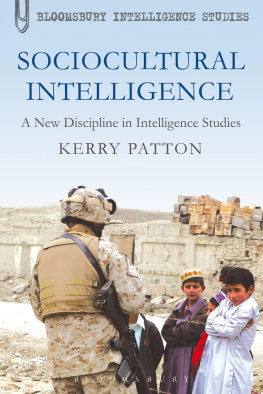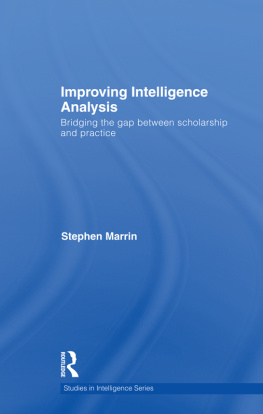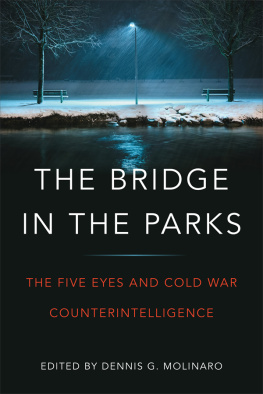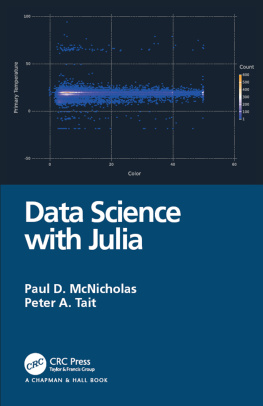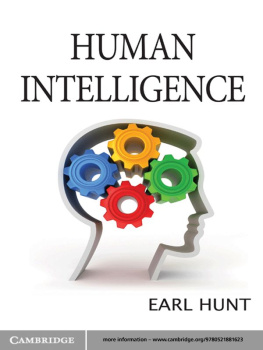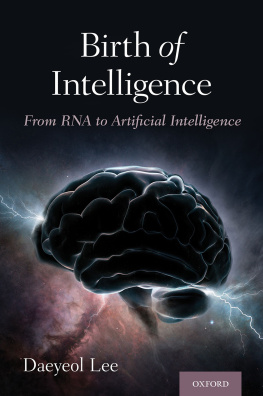This book is dedicated to all those brave men and women along with their families who have sacrificed everything for this great nation. May God continuously embrace you and look over you.
Contents
The following individuals must be recognized for their efforts and assistance with the production and insights needed for this book. Dr. Michael Corcoran (Henley Putnam University) and Dr. Brian Carso (Misericordia University) have been nothing but stellar in their feedback and insights for the peer review requirements along with all other bits of information provided in making this a successful journey. Dr. Katherine Shelfer and her entire team at Saint Johns University for all their hard work ensuring every piece of this puzzle was put together properly. Librarians are wonderful tools! Dr. Janice Laurence (Temple University) and Dr. Montgomery McFate for having faith in me to fulfill the demanding requirements while working a very unique assignment in Afghanistan; without such an assignment the majority of this writing would never have occurred. Dr. Drew Bowman, you are a true friend, teacher, mentor, and leader. We started as simple co-workers, transitioned that relationship into an incredible friendship, and today, I take honor in calling you one of my brothers. Major General Gregory Schumacher has provided invaluable mentorship and sincere interest about this specific topic, which will hopefully assist in socially conditioning the Intelligence Community in an attempt to promote this philosophy. Mr. Wayne Simmons as he is truly a super patriot. He is a man I wish every American would strive to be pertaining to his love of country, willingness of sacrifice, and understandings of National Security needs and demands. To my wife, you truly are my soul mate. Throughout our relationship, I have witnessed you transition into a warrior within by understanding my desires to continue with my passion of fulfilling any role deemed appropriate to assist National Security demands. Because my family has grown so large over the years, I will not go about thanking them all individually; instead I thank each and every one of you for understanding and putting up with me and all my adventures through life. And lastly, I must thank God for looking over me and all my teammates.
After serving almost three decades with the Central Intelligence Agency in some of the most unique and dangerous capacities of Clandestine and Covert Operations my life often depended upon the knowledge and implementation of what the author of this book describes as Sociocultural Intelligence. The fundamental concepts and understanding of how societal systems and networks operate around the world have proven key in the preservation and maintenance of the freedoms of the United States and the western world. Virtually all of my years of academic training were spent attempting to understand human behavior and every facet of human reaction to other humans, known in the intelligence world as the Human Intelligence discipline or Humint. I have discovered through personal experiences and by witnessing asymmetric terrorist threats worldwide that social and cultural understanding is crucial to the success of military and civilian intelligence agencies in the Global War on Terror.
Patton outlines numerous historical implementations of what he refers to as Sociocultural Intelligence further proving that this innovative concept is being utilized by intelligence organizations throughout the world. Relying solely on technical intelligence disciplines such as Electronic Intelligence (Elint), Image Intelligence (Imint), and Signal Intelligence (Sigint) has crippled operational successes in our National Defense capabilities. As Patton deftly notes, human interaction is imperative for sound intelligence collection. The discipline of Human Intelligence, Humint, is not for the cerebrally weak or those with a flawed character. It is a special individual who can perform such tasks; one who is physically and mentally disciplined, ethical, adaptive, flexible, and willing to take risks. The character strengths of those working in the realms of Human Intelligence should be the blueprint for the Sociocultural operative.
No country is capable of competing with the United States in our commitment to National Security. This does not mean that we have reached perfection. We strive every day to achieve it but are still far from it. The dynamic and forward-thinking ideas and suggestions made by Patton to create a formalized, stand alone, Sociocultural Intelligence discipline comes at a time in world history when intelligence agencies are screaming out for new and innovative tools to help understand and defeat the asymmetric and unconventional terrorist threats that we face today. The implementation of Pattons directives will clearly help drive America in its quest to achieve this goal.
Wayne Simmons
CIA (Ret.)
Fox News Terrorism and Intelligence Analyst
November, 2009
Intelligence is a discipline that is crucially needed and depended upon for insights on threats to National Security. Today, the United States benefits from superior technological advancements to improve intelligence collection and analysis requirements. We can track conventional movements across the globe with ease. Intercepting communications among our adversaries has never been so simple. Our abilities to formulate decisions based on such advancements have become second nature. With such advanced systems, an individual with interest must wonder why then the war in Afghanistan continues. Some would claim that the United States has and will continue to fail in its attempts to defeat unconventional and asymmetric threats, not just in Afghanistan but globally due to technological dependency.
Our failures exist due to many reasons, and reliance on technological advancements of intelligence related instruments is one of them. Many would say that we have not failed at all, but with a war going on for over eight years in Afghanistan, arguments can be made otherwise. Eight years into such a war with no sign of victory in the future and the expenditures of billions of dollars along with the continued loss of American and coalition livesthis war should have been over long ago. Mistakes have been made and will continue to be made. These mistakes will impair our successes. They can be prevented, partially, though through the incorporation of a very old yet unofficial tool. That tool is called Sociocultural Intelligence (SOCINT).
Currently, this intelligence discipline does not officially exist because those in leadership positions fail to respect and value the components, fundamentals, and results that can exist through the incorporation of such an intelligence discipline. Maybe they do understand the need and importance, but maybe they have just become so overwhelmed by the unnecessary demands of numbers showing how many High Valued Targets (HVTs) have been killed or captured. Either way, a new intelligence discipline that focuses on social and cultural principles throughout areas of concern is needed.
This book aims to give the reader an opportunity to understand the historical situations where the discipline of SOCINT has been unofficially utilized. Historically, a lot can be learned when attempting to implement new ideas. Through the historical lessons learned, advancements in the approach of implementation, training, and needs have also been addressed. For the most part, all sections have been created with a breadth of knowledge to provide a very broad-based understanding of the subject. Following virtually every breadth of knowledge, a depth of research and writings has been added to provide the reader with greater insight to the topics discussed in the subsections. The first section of this book includes a unique case study about a very strong and encouraging individual with whom I had the chance of interacting while in Afghanistan. This case study was designed to hone the mental demands of the reader in understanding how this proposed new discipline could be implemented internationally. The conclusion adds insight about our domestic issues which will assist in understanding how SOCINT can be used both internationally and domestically.


